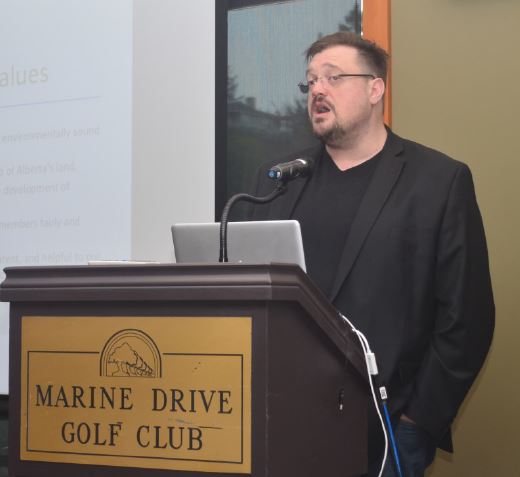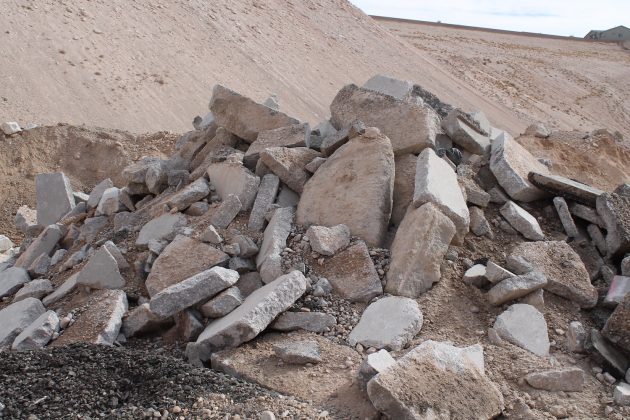
Features
Aggregates
Education
ASGA business as usual but has concerns on aggregate demand
Alberta Sand & Gravel Association executive director gives industry update on COVID-19
April 30, 2020 By Jay Koblun
 John Ashton, ASGA executive director.
John Ashton, ASGA executive director. Staff working from home has been the biggest COVID-19 related change to the Alberta Sand & Gravel Association’s (ASGA) daily operations, but the Alberta aggregate industry could face additional challenges as the pandemic continues.
“In terms of providing the advocacy work that we do for the industry and government there are no interruptions,” said John Ashton, ASGA executive director. “Alberta aggregate producers can be pleased with their association’s ability in keeping up.”
Ashton said the association can maintain business as usual because ASGA worked on and got its continuity plan in place as soon as it was clear COVID-19 would have a large impact on Alberta.
“We got our continuity plan in place just before this became a severe situation, working from home has been the only really big change. It comes with its own logistical inconveniences but that’s all—a bit of determination and problem solving takes care of that,” he said.
Business as usual for ASGA means the association is still working on Scoop, its quarterly magazine, still holding board and committee meetings, having conversations on environmental issues and occupational health and safety, among other operations.

John Ashton, ASGA executive director.
“We’re also still engaging the government in the wake of the permitting delay report we released in January. We’re still in negotiations around that. We’re still doing external outreach and looking for ways to engage—still getting decals on trucks for the truck registry too—all of which happened in April. So, we’re still up and functioning as normal,” said Ashton, adding he is expecting to be back in the ASGA office in May with other staff back maybe in the next few months.
Ashton said the industry is facing all the same challenges it was prior to COVID-19, with two additional challenges.
“All the problems we had before COVID-19 are still there. We still have problems with the speed of which permitting happens. That’s still one of the biggest challenges to the industry and it has been for years now. We still have relationships with municipalities to maintain and improve.
“Within the industry I’m seeing the biggest concern may be finding market for aggregates in the province. We have two primary customers in the industry—either the oil industry or governments and government spending on infrastructure, especially at the provincial and municipal level. So, we are impacted heavily in both,” Ashton explained.
Ashton said the price of oil is devastatingly low which will affect aggregate producers in the north, and recently the government brought in austerity cuts that particularly targeted infrastructure spending.
 “Recently the language coming out of the government since then is that they’re planning on reversing those cuts, which if they do would be great, but we really don’t have a comprehensive plan on how that will look. The Federal government has put stimulus in oil well clean-up, which is a necessity, but doesn’t create demand for aggregate because very little aggregate goes into reclaiming an oil well, if at all. Sometimes it creates recycled aggregate, which creates more supply than it does demand. So, those are the biggest concerns I see for the industry,” he said.
“Recently the language coming out of the government since then is that they’re planning on reversing those cuts, which if they do would be great, but we really don’t have a comprehensive plan on how that will look. The Federal government has put stimulus in oil well clean-up, which is a necessity, but doesn’t create demand for aggregate because very little aggregate goes into reclaiming an oil well, if at all. Sometimes it creates recycled aggregate, which creates more supply than it does demand. So, those are the biggest concerns I see for the industry,” he said.
ASGA is confident its members and other industry professionals will come together and support the industry as always.
“This industry comes together good times or bad and I don’t think that’s been changed by COVID-19,” Ashton said.
“I think that’s just the natural Alberta aggregate community ethic. These guys are all extensively in competition with each other, for sure, these guys are bidding against each other for jobs. But at the same time these guys get together routinely and work towards the betterment of the industry and the betterment of the province. And ASGA is the venue as which that usually happens.”
Ashton said at a board meeting you may see different companies with several employees working together for solutions for the industry. In committee meetings on safety, environmental concerns, truck registration, you’ll see competitors putting business aside, leaving it at the door, and working towards a better province and a better industry.
“COVID-19 hasn’t changed that mindset. It existed well before COVID-19 came to Alberta,” said Ashton. “These guys are resilient. Some of these guys have worked through challenging times in the past and I believe they will remain resilient. We’re still classified as an essential service and we still have a community to serve, a province to serve, and these guys are getting ready to do that.”
As far as events go, ASGA finished its season shortly before COVID-19 concerns caused other industries forced to cancel or postpone their events. ASGA recently held its annual convention and its regional Red Deer Breakfast.
“We got our convention done, our regional Red Deer Breakfast done—and then this hit,” he said. “We don’t really do events in the summer or early fall because that’s when things are going on in pits. We’re starting to look at contingency plans for our fall events and whether or not we can hold them. At this point it’s best thought viewed as 50/50.”
Ashton said ASGA is doing what it can to help itself and the industry stop the spread of COVID-19.
“ASGA’s role in situations like this is to advise, and that’s what we’re doing. We provide resources, or advise with existing resources. Our initiative to date has been to provide easy to follow, accessible advice for safe worksite routines,” he said, adding that a lot of pits are planned to start up again in the next three weeks or so, and ASGA wants to make sure it and the industry is not a source of an outbreak.
“The nature of gravel pits makes it harder for that type of thing to happen because we are never working shoulder-to-shoulder in gravel pit operations. People are in machines. Usually quite a distance apart. But that doesn’t mean we should not be vigilant.”
For more information on ASGA and its resources on COVID-19 visit, www.asga.ab.ca.
Print this page